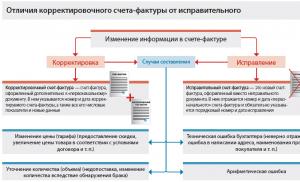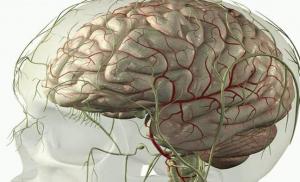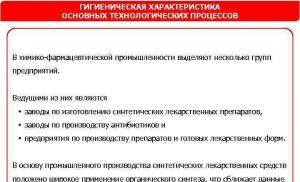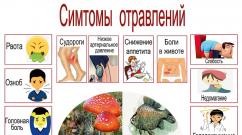German test for the imperative mood. Imperative mood – Imperative
The imperative mood, or imperative, in any language expresses a request, a call to action, or an order. By the way, in German a number of other forms (fm) can be used with a similar meaning (KI and KII, infinitive, present tense and future tense Futurum I). But in this article we will look at imperative as such.
Speaking in detail about the meaning of the imperative in German, we can distinguish the following meanings: request, appeal, proposal, advice, order, prescription, warning, instruction.
Imperative mood in German has three functions:
- when addressing one person on you (du): hör(e) zu! Schreib(e)!
- when addressing several persons, you (ihr): hört zu! Schreibt!
- at polite treatment on You (Sie): hören Sie zu! Schreiben!
Let us consider in detail the formation of each f-we.
F-ma 2nd l. units h. (i.e. when addressing a person in thou) is formed from the stem of the infinitive - the ending of the verb (verb).
Mach-en – mach(e)! Komm-en – Komm(e)! Geh-en – geh(e)!
In the above options, the ending e may be optional, i.e. 2 options are allowed. But usually verbs are used in everyday conversation. without ending: Mach! Komm! Geh!
However, in some cases the ending –e is required – if the stem is a verb. ends in -d, -t, -ig, and also in verbs. rechnen, öffnen.
Öffne die Tür bitte.
Entschuldige mich bitte!
Warte auf mich ein paar Minuten!
In verb. with a separable prefix, the prefix is placed at the end of the sentence, as in the indicative:
Anrufen – ruf mich an! Aufhören – hör auf! Aufstehen – steh auf!
In strong verbs. with an umlaut in the imperative the umlaut is lost:
Laufen – du läufst – lauf!
Tragen – du trägst – trag!
In some strong verbs. with alternation of vowels in the root, the alternation is preserved:
geben – du gibst – gib!
lesen – du liest – lies!
nehmen – du nimmst – nimm !
essen – de isst – iss!
In spoken German, k verb. In the imperative, the particle mal is often added, which in Russian corresponds to the particle –ka.
Guck mal! - Look!
Komm mal her! - Come here!
Warte mal! - Wait a minute!
It is noteworthy that the pronoun du is not usually used, since the pronoun itself gives a clear idea of who the speaker is addressing, although there are no rules prohibiting it.
ATTENTION! Since the forms of the imperative are formed from the infinitive, then the forms of auxiliary verbs. differ from the usual personal fm:
Haben – du hast – Hab /habt/ haben keine Angst!
Werden – du – wirst – Werde/ werdet/ werden bitt nicht böse!
Sein – du bist – Sei/ seid/ seien höfflich!
The form of the imperative when addressing several persons coincides with the indicative (indicative mood), but in the sentence it is placed in the first position:
Zuhören – ihr hört zu – Hört der Lehrerin zu!
Auf schreiben – ihr schreibt auf – Schreibt die Hausaufgabe auf!
Sein – ihr seid – Seid bitte morgen pünktlich!
The polite form (when addressing you) of the imperative coincides with the form of the 3rd letter. plural ( indicative mood), but is also placed at the beginning of the sentence:
Nehmen Sie ihre Aufgabe!
Schreiben Sie bitte ihre Adresse auf!
Kommen Sie bitte hierher!
As for the pronoun, its use here is optional, but a sentence with a pronoun is preferable, as a more polite form of address (of course, if we are talking about communication with a person, and not an impersonal kitchen recipe or job description).
NOTES!
- When addressing several unspecified persons, the infinitive is used: Nicht an die Tür lehnen. Die Tür nicht öffnen, bevor der Zug hält.
- In clear orders that require immediate execution, past participles are used (Partizip II): Aufgestanden! Angetreten!
- For a call to action in relation to the 1st l. units (we) is a verb. lassen:
Lass uns ins Kino gehen. – if there are two interlocutors.
Lasst uns ins Kino gehen. – if there are at least three interlocutors.
- To express an energetic, call, order or demand in a letter, an exclamation mark is used; if attention is not focused on the order, then a period is used. oral speech expressed with appropriate intonation.

The imperative expresses the urge to perform some action. This could be: a request, advice, reminder or warning, call, order, etc.
The verb in the imperative is used in direct speech. It usually appears at the beginning of an incentive sentence. Very often its meanings are enhanced or softened with the help of words and particles such as also So, eben exactly, Pip Well, tatsächlich in fact, in fact, doch well, after all, doch einmal(yes)... well, mal-ka, nur just the same.
In German, the verb in the imperative has the following forms:
2nd person form singular(2. Person Singular) - when addressing one person per You:
Geh!Go!
Lies!Read!
Fang up!Get started!
form of the 2nd plural (2. Person Plural) - when addressing several persons, with each of whom the speaker speaks You:
Geht!Go!
Lest!Read!
Fangt up! Get started!
Form of polite address (Höflichkeitsform) - when addressing one or more persons on You):
Gehen Sie!Go!
Lesen Sie!Read!
Fangen Sie an!Get started!
Form of the 1st person plural (1. Person Plural) - when addressing one or
several persons to carry out joint action:
Gehen wir!Let's go! / Let's go!
Fangen wir up! Let's begin! / Let's get started!
FORMATION OF IMPERATIVE FORMS
1. Form of the 2nd person singular (2. Person Singular)
infinitive stem + ending -e
(strong verbs change -e on - i(e)) or without ending
Geh! Go!
L ie s! Read!
Fang up! Get started!
In this case the ending -e:
1) always get verbs with a stem ending:
· to consonant + T or n(since such combinations of consonants are difficult to pronounce):
Atm e langsam! Breathe slowly!
Öffn e die Tür!Open up door!
· on -d, -t(more often), -ig:
Bad dich!Take a bath!
· on -ein, -erp, with a vowel -e in a suffix, especially in -ein, may be omitted:
Lä ch(e)le!Smile!
2) absent at strong verbs, who have -e changes to -i(e)
Gib mir das Buch!Give me to me book!
Hilf world!Help me!
2. Form of 2nd plural (2. Person Plural)
This form coincides with the 2nd person plural indicative, while the personal pronoun ihr absent.
Sagt mir bitte! Tell me please!
Bitte antwortet auf meine Frage!Please answer my question!
3. Form of polite address (Höflichkeitsform)
This form is formed from the 3rd person plural indicative by changing the word order (subjects and predicates are swapped):
Sprechen Sie bitte langsam! Please speak slowly!
4. Form of the 1st person plural (1. Person Plural)
This form is the same as the 1st person plural indicative and differs only in word order. It expresses a call, an invitation, a request to carry out some joint action, and not a demand:
Machen wir jetzt diese Ü bung! Let's do this exercise now!/
Let's do this exercise now!
REMEMBER imperative forms of the following verbs:
haben- have
sein- be
werden- become
2nd person singular Sei!Hab(e)!Werd(e)!
2nd person plural Seid!Habt!Werdet!
Form of polite address Seien Sie!Haben Sie!Werden Sie!
The imperative mood in German can be formed for all persons except 1 l. units tsp and 3 l.
Imperative sentence in German it begins with a verb in the imperative form. It is formed from the verb in Präsens:
a) for 2 l. units h. from the stem of the verb in the form of 2 l. units h., sometimes with the addition of the ending -e. Strong verbs adding to 2 l. units h. umlaut, in the form of the imperative mood it is not added. Separable prefixes are separated and moved to the last place.
Du machst das Fenster auf — → Mach(-e) das Fenster auf!
Du gehst einkaufen — → Geh(-e) einkaufen!
Du läufst schnell — → Lauf schnell!
Du sprichst sehr leise — → Sprich laut!
The ending -e is optional in most cases; it is obligatory for weak verbs if the stem ends with —d, — t, — n, — m.
→ Bad!
→ Warte!
→ Arbeite!
b) For the other three forms (2 literal plural, 1 literal singular and polite form), only the word order changes from the corresponding form of the verb, unlike a declarative sentence. Separable prefixes are separated and moved to the last place.
2
l.
pl.
h.
Kinder, räumt euer Zimmer auf!
Zieht die Mäntel aus und kommt herein!
1
l.
pl.
h.
Gehen wir heute ins Kino! = Wollen wir ins Kino gehen!
Schreiben wir alles auf, sonst vergessen wir das!
wir.
Polite form.
Kommen Sie bitte näher, so können Sie das Bild besser sehen!
A pronoun must be present for this form Sie.
Verb « sein» has the following forms of the imperative mood:
| Infinitive | Du | Ihr | Wir | Sie |
| Sein | Sei | Seid | Seien wir! | Seien Sie! |
| Sei mir nicht böse! | Kinder, seid lieb! | Seien wir ehrlich! | Seien Sie dankbar! |
Exercises / Ü BUNGEN
1. Form sentences in the imperative mood according to the model:
Ich will Wäsche waschen. à Bitte, wasche Wasche!
1. Ich will das Schlafzimmer sauber machen.
2. Wir wollen zu Hause bleiben.
3. Ich will meine Schwester mitnehmen.
4. Ich will meine Freunde einladen.
5. Wir wollen einen Kuchen backen.
6. Ich will hier Platz nehmen.
7. Ich will meine Gastfamilie begrüßen.
8. Wir wollen auf unseren Betreuer warten.
9. Ich will Abendbrot im Wohnzimmer essen.
10. Wir wollen uns unterhalten!
2. Read the note for students, find verbs in the imperative mood, determine their form and infinitive. Translate the verbs into Russian.
For example.: halte (sauber) –
halten- keep it clean.
… … … … …
3. Give your friend advice:
Ich bin zu dick (weniger essen). → Iss weniger!
1. Ich bin immer erkältet (wärmere Kleidung tragen)
2. Ich komme immer zu spät zur Arbeit (früher aufstehen)
3. Mein Auto ist immer kaputt (ein neues kaufen)
4. Unsere Miete ist zu teuer (eine andere Wohnung suchen)
5. Ich bin zu unsportlich (jeden Tag 30 Minuten laufen)
6. Meine Zimmerpflanzen gehen kaputt (sie nicht zu viel gießen)
7. Meine Arbeit ist so langweilig (sich um eine andere Stelle bewerben)
8. Ich habe so wenig Freunde (netter sein)
9. Meine Pfannkuchen werden nicht fest (mehr Eier nehmen)
10. Wir haben keinen Praktikumsplatz (besser Deutsch lernen)
Imperative
Imperative in German (Imperativ) expresses a command, order or request. It is in some ways similar to the imperative mood in other European languages. This similarity is observed primarily in the fact that the formation of the imperative mood comes from the forms of the present tense verb and has three or four forms. In German: 2nd person singular, 1st and 2nd person plural, and the polite form, which is the same as the 3rd person plural. For verbs with a separable part, as in the present, this part goes to the end of the sentence (see § 31).
Forms of the 2nd person singular are formed using the suffix -e, although more and more often they simply refuse it. That is, it is not required for most words. The exception is when the stem of the verb ends in –d, -t, -ig, -chn, -ffn. This is done for convenience.
For some strong verbs, the formation of the imperative may occur slightly differently, but very predictably. Strong verbs with alternation e/i fundamentally get –i(e) as in present, but they do not have a suffix -e. However, verbs with –a-, -au- And -o- are fundamentally left without an umlaut. In the same way, other strong verbs do not change anything.
The forms of the imperative for the 2nd person plural and the polite form almost always coincide with the forms of the present, only in the 2nd person there is no personal pronoun, and with polite address it remains and comes after the verb in the imperative.
For the 1st person plural there is also nothing fancy. This form copies the present form, but the pronoun wir comes after the verb. This form assumes that the speaker himself is included in the circle of those who are subject to the order or request (this is inclusiveness). Often the form from this person is found in construction with the verb wollen.
The imperative mood is formed completely differently in irregular verbs haben and sein. They use the infinitive rather than the present as the basis for the imperative.
When addressing an indefinite circle of people (the public as a whole), the infinitive is often used. Such phrases can be found on inscriptions, signs, you can hear similar things at train stations or in other crowded places.
There are other ways to express motivation in a sentence. Among them, the infinitive and second participle are increasingly used. Both of them express in some way a categorical order that must be carried out immediately. Wed:
|
|
|
Also often the present and future tenses express motivation. This can be discovered contextually, even without knowing such a function of these tenses. Russian has this too.
- Du bleibst hier. Er verschwindet.- You stay here. He fails.
- Sie werden hier bleiben!- You will stay here!
There are still many ways to express a request, command or order. Among them: designs haben/sein + zu+ Infinitiv, modal verbs, passive and subjunctive mood in the present tense. They all usually serve a different function, but in the context of speech, the meaning they express can be interpreted as a call to action.
| Previous lesson: 31. Verbs with separable and inseparable parts |
32. Imperative | Next lesson: 33. Forms of the future tense |
As promised several lessons ago, we will look at the rules for forming incentive sentences in the German language.
An imperative sentence has no subject and the verb comes first.
Different verbs form the imperative mood in different ways. Let's look at some examples of strong and weak verbs.
Formation of the imperative mood with weak verbs
- Addressing “you” (du).
- Polite address as "you".
Tanz(e) – Dance!
Erzähle! - Tell me!
Interessiere dich! - Take an interest!
Tanzt! - Dance!
Erzahlt! - Tell me!
Interessiert euch! - Be interested!
Tanzen Sie! - Dance!
Forming the imperative mood with strong verbs
- Addressing “you” (du).
- Addressing "you", but to a group of people (ihr).
- Polite address as "you".
Sprich! - Speak! (from the verb sprechen - to speak)
Gib! - Give it! (from the verb geben - to give)
Fahr! - Go! (from the verb fahren - to go)
Sprecht! - Speak!
Gebt! - Let's!
Fahrt! - Go!
Sprechen Sie! - Speak!
As you can see, in plural The imperative mood of weak and strong verbs is formed according to the same rule.
The main difference is that in the singular of the first, weak verbs have an -e ending (for example, tanze), and strong ones have a zero ending (for example, sprich).
Another important feature is the change in the root vowel of some strong verbs, which change the vowel in the 2nd and 3rd person singular. Most often, verbs with the letters “e” in the root undergo changes - the vowel changes to “i” or “ie”. For example:
empfehlen - to advise
2nd sheet, singular: Empfiehl!
2nd letter, plural: Empfehlt!
Polite form: Empfehlen Sie!
In colloquial speech, the ending “e” is also dropped in weak verbs. Very often in informal communication the particle “mal” appears, which is similar to the Russian particle “ka”, in such expressions as: look - guck mal!, say - sag mal!
The polite form of the imperative mood is usually supplemented with the word “bitte” - please. Thus, the “command” turns into a request, which makes the phrase less harsh and much more pleasant to the addressee. For example:
Sagen Sie bitte…. - Tell me please…
Important! “bitte” is not separated by commas.
However, the imperative mood is not used very often in German, and for requests it is better to use the forms subjunctive mood and phrases like:
Könnten Sie mir bitte sagen…/ Würden Sie bitte sagen…. - Could you tell (me)...
If you want to offer something to your interlocutor, then the formula to use is very simple:
Tanzen wir!
Wollen wir tanzen!
As you remember, the verb “wollen” means “to want”, but in this case both sentences are translated as “Let's dance!”, i.e. modal verb in incentive sentences it means “let’s.”
As for the verb “sein” - “to be”, its forms of the imperative mood just need to be remembered:
2nd sheet, singular: Sei! - Be!
2nd letter, plural: Seid! - Be!
Polite form: Seien Sie! Be!
Sentence: Sien wir! Wollen wir sein!
Two latest forms They are unlikely to come across you in everyday communication, but it will not hurt to know them.
Lesson assignments
Form the forms of the imperative mood (2nd person singular; 2nd person plural; polite form) from the following verbs:
- geben
- lesen (read)
- machen (to do)
- sagen
- kommen (to come)
- sehen (watch)













